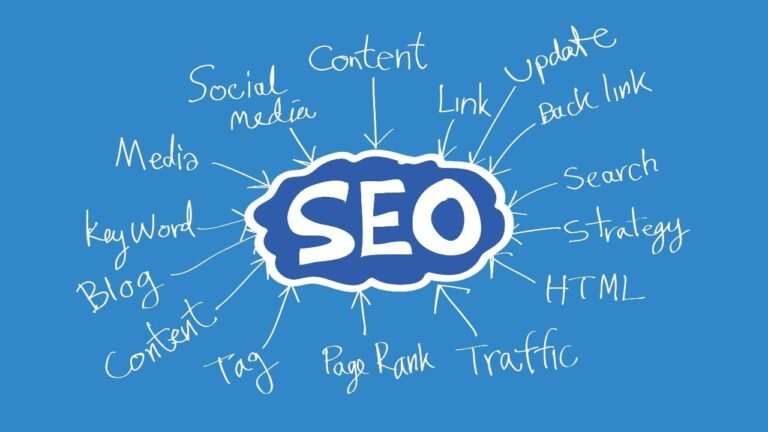Introduction to SEO
What is SEO?
- Definition of SEO (Search Engine Optimization): How SEO works involves optimizing a website to improve its visibility in search engine results pages (SERPs), driving organic traffic.
Why SEO Matters
- Importance of SEO for Online Visibility and Organic Traffic: Effective SEO helps businesses appear higher in search results, making it easier for potential customers to find them without paid advertising.
How Search Engines Work
- Overview of Search Engines and Their Role in Ranking Content: Search engines like Google, Bing, and Yahoo use algorithms to crawl, index, and rank websites based on their relevance and quality, providing users with the most accurate and useful search results.
Key Components of SEO
On-Page SEO
- Content Optimization: Ensuring high-quality, relevant content that answers user intent with proper keyword usage and internal linking.
- Keyword Research: Identifying valuable keywords to target for better rankings.
- Meta Tags: Optimizing titles, descriptions, and headers for search engines and users.
Off-Page SEO
- Link Building: Gaining backlinks from trusted sites to boost domain authority.
- Social Signals: Using social media to increase engagement and drive traffic.
- Brand Mentions: Building credibility through brand mentions on external sites.
Technical SEO
- Site Structure: Organizing the website for easy navigation and internal linking.
- Mobile Optimization: Ensuring a smooth experience on mobile devices.
- Site Speed: Improving website loading time for better user experience.
- Crawlability: Ensuring search engines can easily crawl and index the site.
How Search Engines Work
- Crawling:
- Search engines use automated bots, often referred to as “spiders” or “crawlers,” to explore the web and discover new or updated content. Crawlers follow links across websites to find pages and gather data, which is crucial for understanding how SEO works and ensuring search engines are aware of all content, especially new pages being added.
- Indexing:
- After content is crawled, it is indexed, which means that search engines organize and store the collected information in vast databases. The indexing process involves evaluating the content’s relevance and categorizing it based on various criteria, such as keywords, content structure, and multimedia. Indexed content is then ready to be retrieved when users search for relevant topics or queries.
- Ranking:
- Once content is indexed, search engines rank it based on numerous factors to determine its position in the search engine results pages (SERPs). These ranking factors include relevance to the search query, content quality, user experience, page load speed, backlinks, and domain authority. Search engines aim to provide the most relevant, authoritative, and trustworthy results to users based on their search intent, which is why high-quality content and optimization are key to achieving top positions.
SEO Strategy & Implementation
- Keyword Research: Conducting a comprehensive analysis to identify high-value, relevant search terms that align with both user intent and business objectives. This involves examining search volume, competition, and user behavior to select the most effective keywords for driving targeted traffic and increasing visibility in search engine results.
- Content Creation: Developing high-quality, engaging content tailored to the target audience. This content should not only be informative and relevant but also strategically optimized with selected keywords, internal links, and multimedia elements to improve user experience. Additionally, content should address user queries, offer solutions, and encourage interaction, ultimately helping to boost rankings and conversions.
- Link Building: Securing authoritative and relevant backlinks from reputable sources, such as industry leaders, trusted publications, and high-quality websites. This process involves outreach, guest posting, and creating valuable content that naturally attracts backlinks. High-quality backlinks signal to search engines that the website is trustworthy and relevant, thus improving its credibility and domain authority.
Measuring SEO Success
- Key Metrics to Track:
- Organic Traffic: Monitoring the volume of visitors arriving via search engines to gauge how SEO works in driving traffic and effectiveness.
- Keyword Rankings: Tracking the position of targeted keywords in search engine results to evaluate SEO performance and identify areas for improvement.
- Conversion Rates: Analyzing the percentage of visitors who take desired actions, such as making a purchase or submitting a contact form, to measure the impact of SEO on business goals.
- Tools for Monitoring SEO Performance:
- Google Analytics: A comprehensive tool to track website traffic, user behavior, and conversions, providing insights into how SEO efforts influence site performance.
- SEMrush: A robust platform offering keyword tracking, competitor analysis, and backlink monitoring, helping to refine SEO strategies and stay ahead of competitors.
- Ahrefs: A powerful SEO tool for monitoring keyword rankings, backlinks, and overall site health, enabling continuous optimization and growth.
Conclusion
- Recap of the Importance of SEO:
SEO is essential for businesses aiming to boost online visibility, attract organic traffic, and enhance user experience. Understanding how SEO works and optimizing content and technical elements helps businesses rank higher in search results, making it easier for customers to find them. Effective SEO not only drives traffic but also enhances credibility and fosters long-term growth. - Continuous Adaptation to Algorithm Changes and Evolving Search Trends:
SEO is a dynamic field that requires constant monitoring and adjustment. Search engines frequently update their algorithms to provide better user experiences and more accurate results. As such, staying informed about these changes and adapting SEO strategies accordingly is crucial. By staying updated with search trends and best practices, businesses can maintain rankings, attract traffic, and stay competitive.
At ML Digital Marketing, we help businesses maximize SEO to boost visibility, drive traffic, and increase conversions. Our experts are here to help improve your rankings, optimize your site, and develop a tailored SEO strategy. Contact us today to schedule a consultation and start transforming your online presence with proven SEO strategies that deliver measurable results.
Frequently Asked Questions (FAQs)
- What is the difference between on-page and off-page SEO?
- On-page SEO refers to the optimization of content, meta tags, and site structure on your website. Off-page SEO involves building external factors like backlinks, social signals, and brand mentions to boost site authority.
- How long does it take to see results from SEO?
- SEO is a long-term strategy. Off-page SEO involves building external factors like backlinks, social signals, and brand mentions to boost site authority.
- Can SEO help my local business?
- Yes! Local SEO focuses on optimizing your website and online presence for location-based searches. It’s a powerful way to boost visibility in local search results, driving more foot traffic to your business.
- Why is mobile optimization important for SEO?
- With the growing use of mobile devices, search engines prioritize mobile-friendly websites. A responsive site ensures a seamless user experience across devices, which can improve your rankings and reduce bounce rates.









